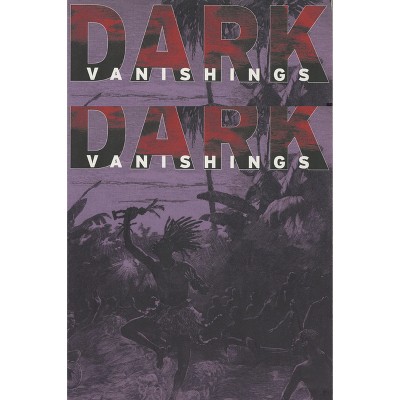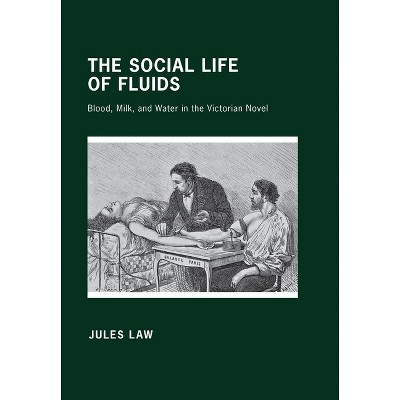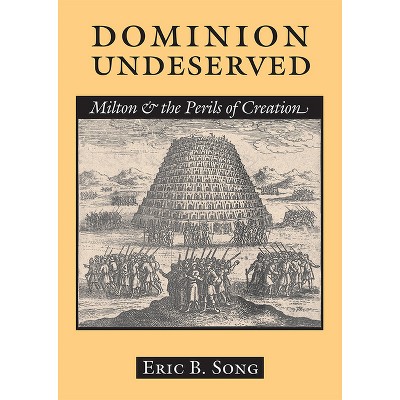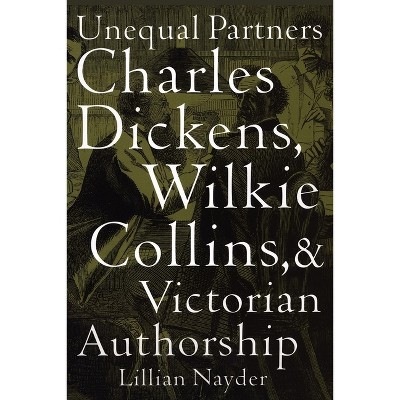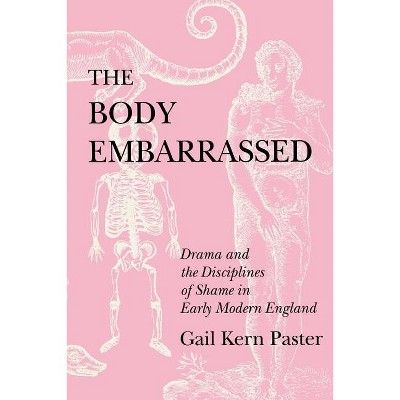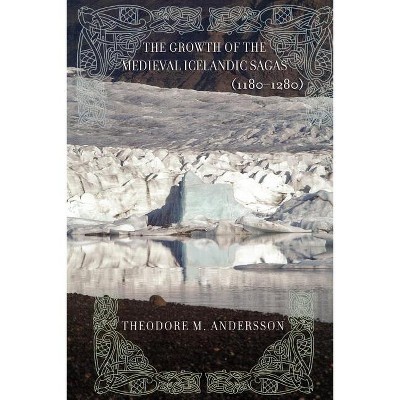About this item
Highlights
- Despite writing about himself extensively and repeatedly, John Milton, the archetypal Puritan author, resolutely avoids the obligatory Augustinian narrative of sinfulness, conviction of sin, reception of the Word, regeneration of the spirit, and sanctification.
- About the Author: Stephen M. Fallon is Cavanaugh Professor in the Humanities at the University of Notre Dame.
- 296 Pages
- Literary Criticism, European
Description
About the Book
Despite writing about himself extensively and repeatedly, John Milton, the archetypal Puritan author, resolutely avoids the obligatory Augustinian narrative of sinfulness, conviction of sin, reception of the Word, regeneration of the spirit, and...
Book Synopsis
Despite writing about himself extensively and repeatedly, John Milton, the archetypal Puritan author, resolutely avoids the obligatory Augustinian narrative of sinfulness, conviction of sin, reception of the Word, regeneration of the spirit, and sanctification. The doctrine of fall, grace, and regeneration, so well illustrated in Paradise Lost, has no discernible effect on Milton's overt self-representations. Exploring this anomaly in his new book, Stephen M. Fallon contends that Milton, despite his deep engagement with theology, is not a religious writer.
Why, Fallon asks, does Milton write about himself so compulsively? Why does he substitute, for the otherwise universal theological script, a story of precocious and continued virtue, even, it seems, a narrative of sinlessness? What pressures does this decision to reject the standard narrative exert on his work?
In Milton's Peculiar Grace, Fallon argues that Milton writes about himself to gain immortality, secure authority for his arguments, and exert control over his readers' interpretations. He traces the return of the repressed narrative of fallenness in the author's unacknowledged and displaced self-representations, which in turn account for much of the power of the late poems. Fallon's book, based on close readings of Milton's "self-constructions" in prose and poetry throughout his career, provides a new view of Milton's life and his importance for contemporary literary theory-in particular for continued questions about authorial intention.
To listen to a radio interview with Stephen Fallon discussing Milton's enduring significance, on the Australian Broadcasting Company's "Late Night Live," click here.
Review Quotes
Cogently argued and clearly written, Milton's Peculiar Grace makes a solid contribution to scholarship. While informed by contemporary theory, the book wears its critical vocabulary lightly: an exercise in good old-fashioned philology, Fallon puts the Milton canon in dialogue with its predecessors in self-fashioning, both classical and Judeo-Christian: Jeremiah and Isaiah; Cicero; Augustine; Calvin and Arminius, Baxter and Bunyan. Students interested in Milton's life, his prose polemics, and his complex theology will wish to grace their shelves with this book.
-- "The Review of English Studies"Fallon makes a truly important contribution here.... His book deserves to be widely read and well.... The tangled syntax that Milton employs [in his autobiographical writings] to argue his way out of appearing sinful or otherwise deficient provides Fallon with many opportunities to explore Milton's anxieties about sin and error. He reads such moments with considerable sensitivity and insight. His study of Milton's efforts to appear sinless is thorough and persuasive.
-- "Religion and the Arts"The long conversation about Milton's works has acted like a test case-or, in recent years, a control group-for critical theories. For a while, the author was dead to hip literary analysis, but Milton remained unquestionably alive because his strong authorship presence was resistant to late twentieth-century theory. Forms of literary biography, including political and religious historicism, have remained central to Milton studies and have made, to varying degrees Milton himself the center of analysis still. Nevertheless, it did become harder for Miltonist to talk openly about what Miltonists do.Milton's Peculiar Grace: Self-Representation and Authority has the strength and honesty to be completely open about its method. Stephen Fallon, a highly respected Miltonist, invites welcome debate about our relationship to Milton and his work. Fallon argues that Milton is always writing about himself.There is no doubt that Milton represents himself throughout his works, from his student exercises to the final poems that are burdened with and enriched by a life of hope an disappointment. Milton's Peculiar Grace succeeds brilliantly in returning our full attention to the presence of that overweening, irascible, proudly singular voice we call Milton.
-- "Milton Quarterly"Though Milton never wrote a full-fledged autobiography, he did incorporate into his various works many instances of self-representation. Identifying and interpreting these passages, Fallon offers a biographical reading of autobiographical passages in Milton's prose and poetry.... Keying onto certain telltale signs in the text--whether a contradiction, an elision, or convoluted rhetoric--Fallon offers a persuasive and clearly written postmodern biography or psychobiography that is always insightful and often brilliant. This is a Milton who appears to vacillate between certain antinomies--e.g., confidence and despair, perfectionism and error, and the like--a Milton suited to present-day sensibilities, a Milton who is a kaleidoscopic character, not a stable construct. Essential.
-- "Choice"About the Author
Stephen M. Fallon is Cavanaugh Professor in the Humanities at the University of Notre Dame. He is the author of Milton among the Philosophers: Poetry and Materialism in Seventeenth-Century England, also available from Cornell.







